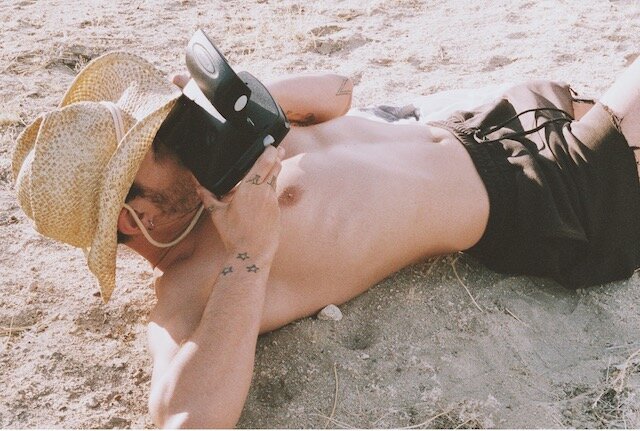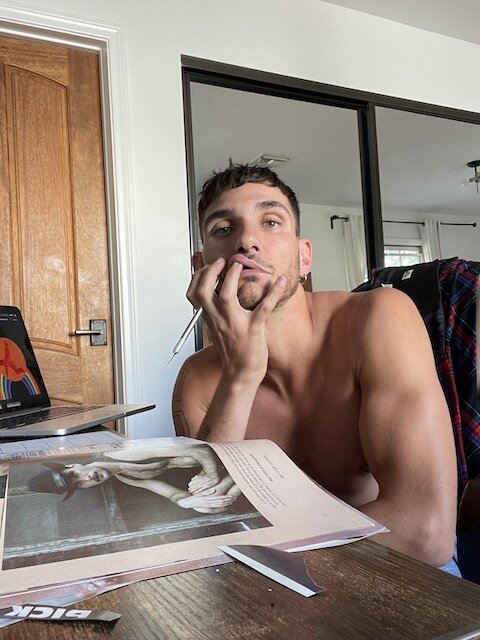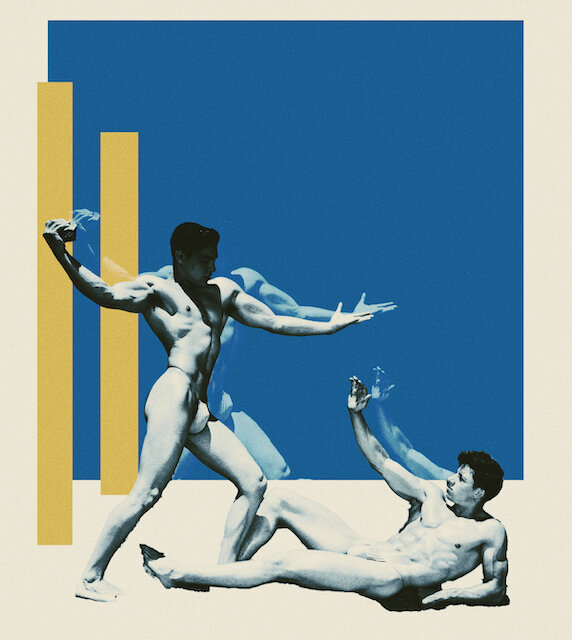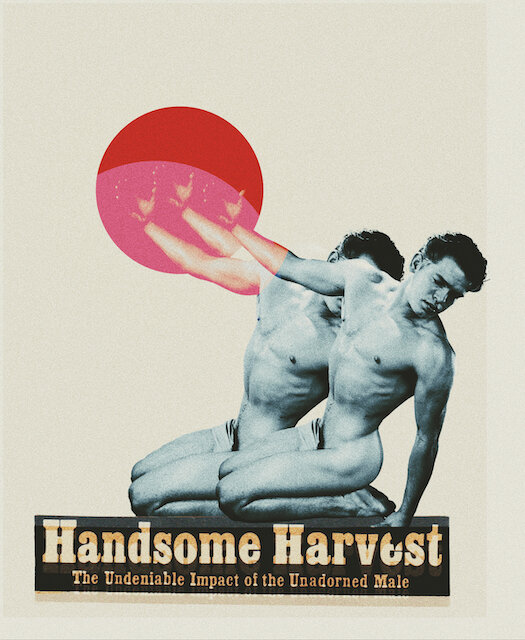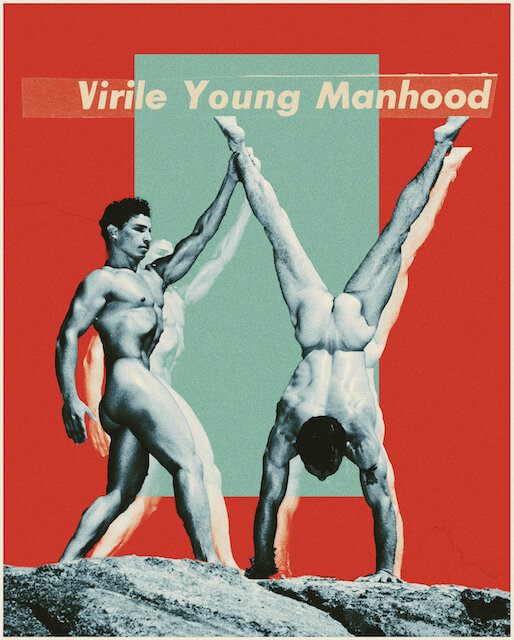Interview: Ori Paul Levi
Western Photography Guild recently collaborated with Los Angeles-based visual artist Ori Paul Levi on a series of collages that incorporate original photographs by Don Whitman. Although Ori is still a young man, he has a long history of creative accomplishments including time spent in fashion, publishing, photography, and most recently collage art.
His works frequently incorporate vintage photographs of nude men, sometimes in sexual situations. While the photographs themselves may be 40 or 50 years old, Ori’s carefully and artfully arranged collages are fresh and full of life. They incorporate bold color and strategically placed geometric shapes.
Thanks to this collaboration, the team at Western Photography Guild learned a great deal from and about Ori Paul Levi. We thought it only fair that we introduce Ori to you so that you might learn the interesting backstory of this gifted artist and his art.
© Ori Paul Levi
WPG: Who is Ori Paul Levi and how did you become the artist you are today?
OPL: My name is Ori Paul Levi and I’m a visual artist living in Los Angeles. I began making art at a very young age. I’ve always been drawn to creating visual displays of whatever I can find. I grew up in Tel-Aviv, Israel, which is very queer and artsy. After attending school in Milan, Italy I moved to London, where I started my career working for fashion magazines which had a huge impact on my process and visual sense. After relocating to Los Angeles in 2015, I began creating more independent content which led me to where I am today.
WPG: Your work appears to be heavily influenced by the physique photographers of the 1950’s, 60’s and 70’s. What draws you to this type of imagery?
OPL: I just love those eras and I think they introduced the best music, photography, artists & fashion. Those images hold a sense of purity, sensuality and expression that’s missing in our modern society.
© Ori Paul Levi
WPG: Some of your work can be quite sexual in nature. How does that affect your ability to have your work seen by a wider audience?
OPL: The sexuality of my work is the shock factor (at least to some people) and while it plays an important role in my pieces, the message between-the-lines is the main (at least for me) focus. Talking about sex, being able to express ourselves sexually and to have art that’s about sex or sexuality is key to evolving our society to a more open and accepting position. There are hurdles and there’s a lot of censorship, especially on social media. But, I have full faith in my work and for what it stands for.
WPG: What draws you to digital and analog collage? Do you prefer one format over the other?
OPL: There really isn’t much difference for me between the two. I cut everything by hand which I then scan and continue to work with on a computer - using software allows me to create layers, color and depth in a way that is just not possible when doing things in analog format. I believe my work is a combination of the two. I love them both equally.
WPG: Social media famously censors imagery of the male physique. Have you ever experienced censorship and, if so, how did you respond to it?
OPL: All the time. It can be really frustrating, especially when all of Instagram is guys without shirts and girls wearing thongs. That platform oozes sex. Yet, when it’s gay content or overtly sexual, it gets censored, removed or blocked. I respond to censorship by never taking it personally. It’s my mission to open people’s minds to sex, sexuality and self-expression. It doesn't matter how many times I get banned or blocked, my goal doesn't change.
© Ori Paul Levi
WPG: You’ve lived in both Europe and the United States. When it comes to creativity and artistic expression what is the biggest difference between the two?
OPL: It’s easier to express sexuality and to talk about sex in Europe in comparison to America. I think that’s the biggest difference.
WPG: You have extensive experience working with fashion designers including Moschino and Comme Des Garcons. How do these experiences influence and inspire you as an artist?
OPL: Shortly after finishing with my schooling I moved to London. I was fresh out of school and looking for something to do. I came upon an internship position at Wonderland Magazine and from there I moved to I-D magazine, and after that my own publication QWHO. Working in fashion had a huge impact on my work. Being around photographers, styling photo shoots and creating worlds and stories really helped evolve my visual sense and understanding of lighting composition and beauty.
WPG: As a photographer yourself, what inspires you when making photos?
OPL: Beauty. I can usually find it in light, color, composition, the human body, earth and everything in it.
WPG: Artists typically evolve over a period of time, finding and developing new outlets for expression. What might your work look like in five or ten years?
OPL: I think my work changes by the minute. I have bad A.D.D (Attention Deficit Disorder) and I can’t ever repeat the same action twice as my brain gets bored fast. It’s hard to say what I’ll be creating years from now but I’m quite sure it’ll be hot.
Prints and original art from Mountain Men: The Don Whitman Collages will be available for purchase at www.oripaullevi.com and through select gallery representation late June 2021. A variety of t-shirts incorporating the designs is also forthcoming. Follow us on Instagram up to the minute information.
